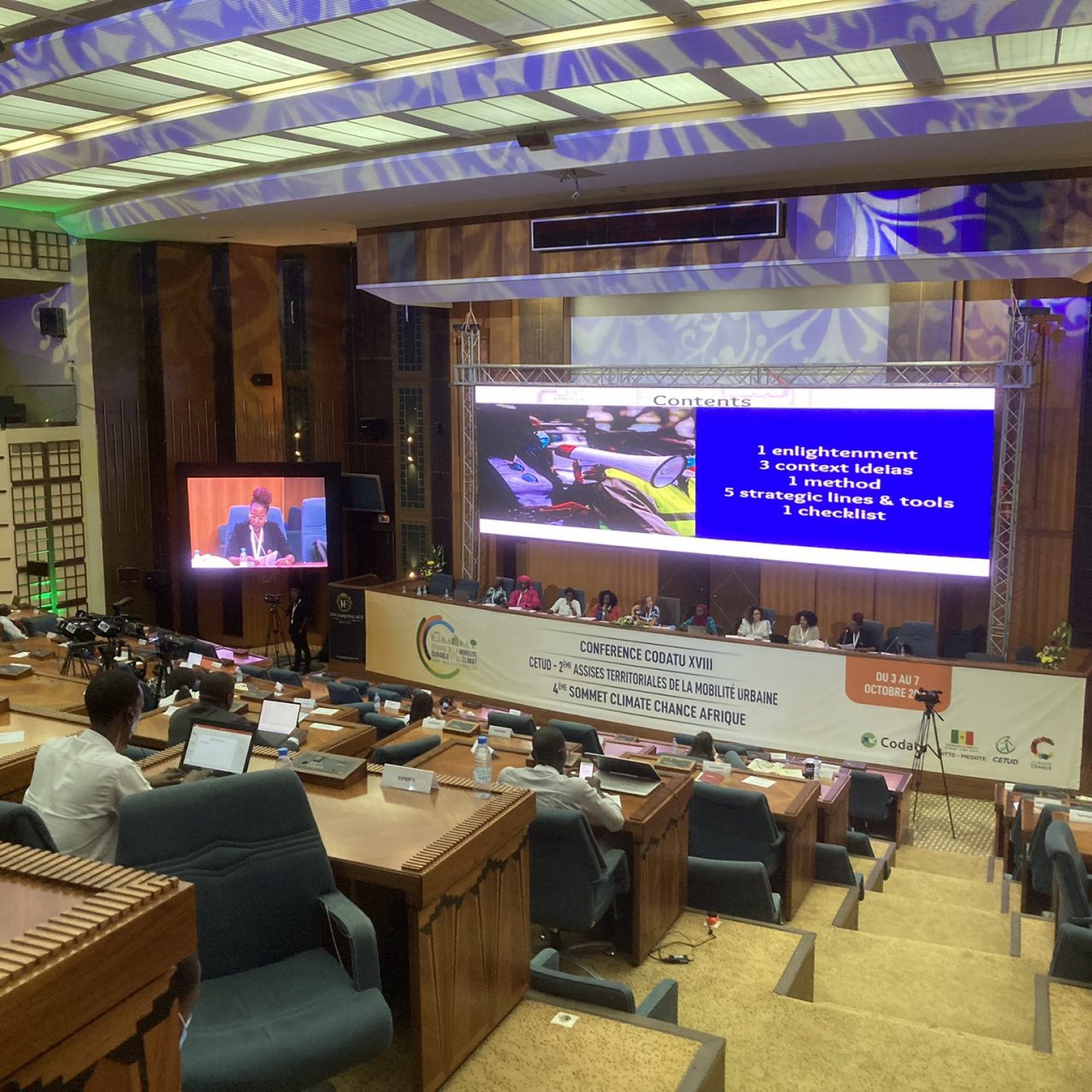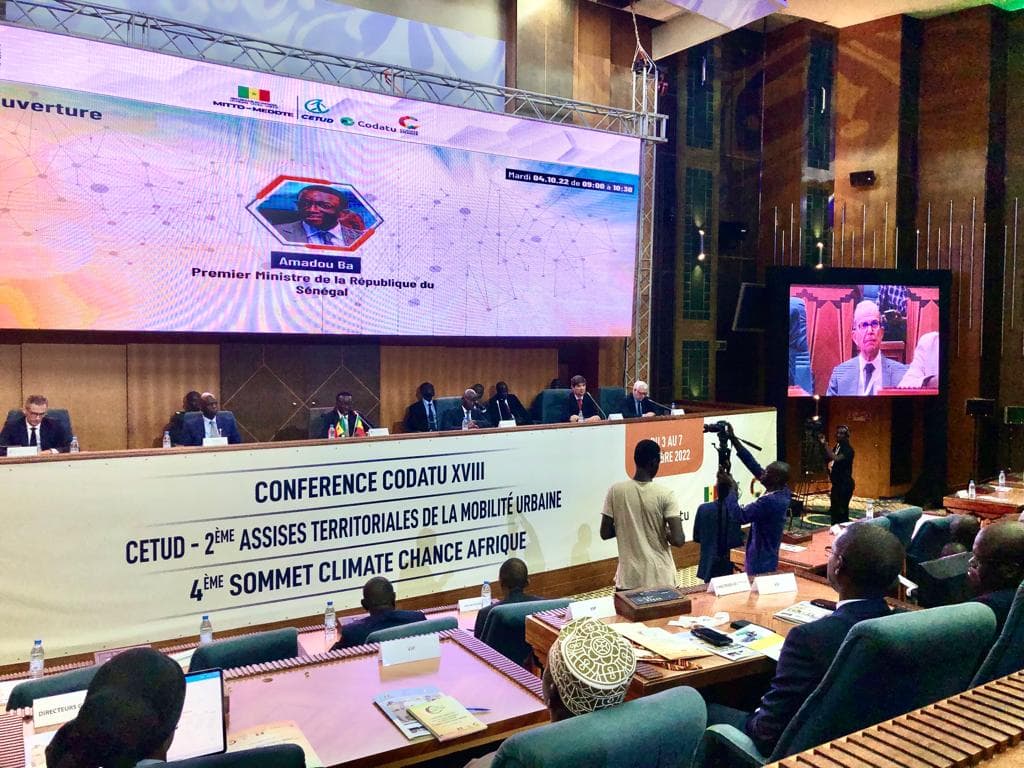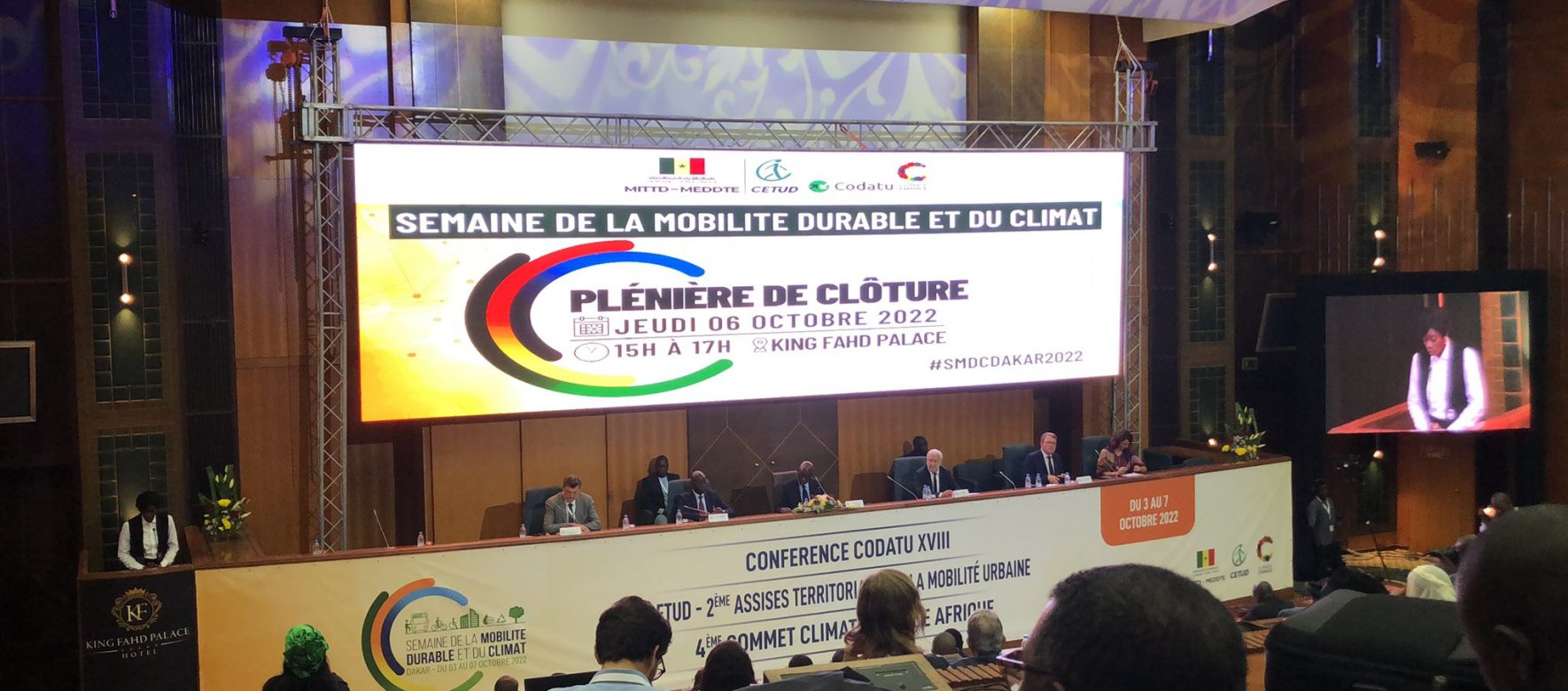In Dakar during this Sustainable Mobility and Climate Week which took place from October 3 to 7, 2022, actors from all over the world - in particular from the African continent, host of the next COP27 - came together to reaffirm their commitment and the decisive role of territorial action in developing sustainable mobility and in mitigating climate change as well as in adapting to its consequences.
The science is unequivocal and the latest IPCC report shows it, climate change is a concrete threat on all continents. Warming above 1.5°C will lead to serious and irreversible impacts, limiting the ability to adapt and seriously threatening the balance of both natural ecosystems and human societies. The year 2022 and its procession of climatic disasters is a clear illustration of this.
The participants at the Dakar summit, from all categories of climate and sustainable mobility stakeholders, reaffirmed the strong priorities they wish to see put at the heart of the COP 27 debates, recalling that climate change is a threat direct for peace in the world, in particular by the food and energy insecurity that it generates.
They recalled the need to increase attention to adaptation issues and to rebalance negotiations and financing in relation to investments in mitigation.
They reaffirmed the need to strengthen access to all types of financing at the territorial level, the need for innovation in green financing, which must be more open to developing countries. They insisted on taking into account the role of local authorities, which are often the best able to implement holistic policies adapted to local realities in close liaison with the economic and social players in their territories.

In this perspective, capacity building (training and project engineering) is of paramount importance.
They stressed the importance of resolute action to ensure the right everywhere, for everyone, to sustainable mobility, which is a major condition for access to education, employment and freedom. individual. For this, the emphasis must be placed on all innovations and funding to develop alternative solutions to the individual use of carbon-based means of transport. They recalled the importance of these collective and active mobility policies in reducing greenhouse gas emissions.
They want, more than ever, to accelerate the energy transition in an extremely tense geopolitical context, in particular due to the weakening of fossil fuel supplies, impacting all the economies of the world.
They asked that all the necessary changes be made with a permanent concern for justice and equity. They recalled that States do not all have the same responsibility for the current climate situation, nor the same means to deal with it. This also applies at the personal level and insisted on the need to take into account in the relevant public policies inequalities of gender, generation and territory.
Finally, they recalled that a global response to the challenges of climate change requires a regulated world, the definition of objectives and common strategies between States, for the stabilization of the climate, the reduction of emissions, adaptation and the response to loss and damage suffered by the most vulnerable countries. Also peace in the world and respect by all for the Charter of the United Nations is an absolutely necessary condition for the success of the Paris agreements on the climate, the implementation of which must be accelerated and broken down into concrete and ambitious actions, in particular on the African continent.





















Réagissez à cet article